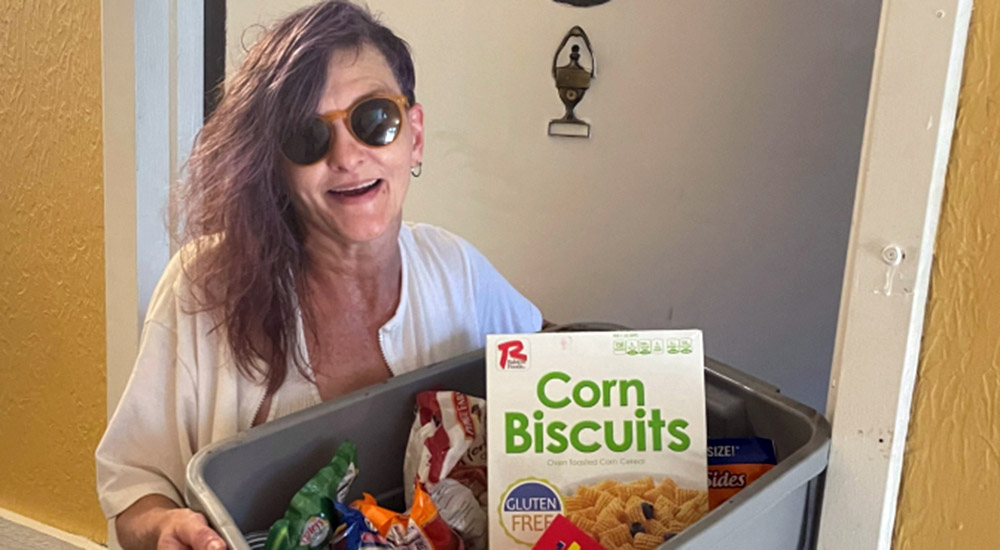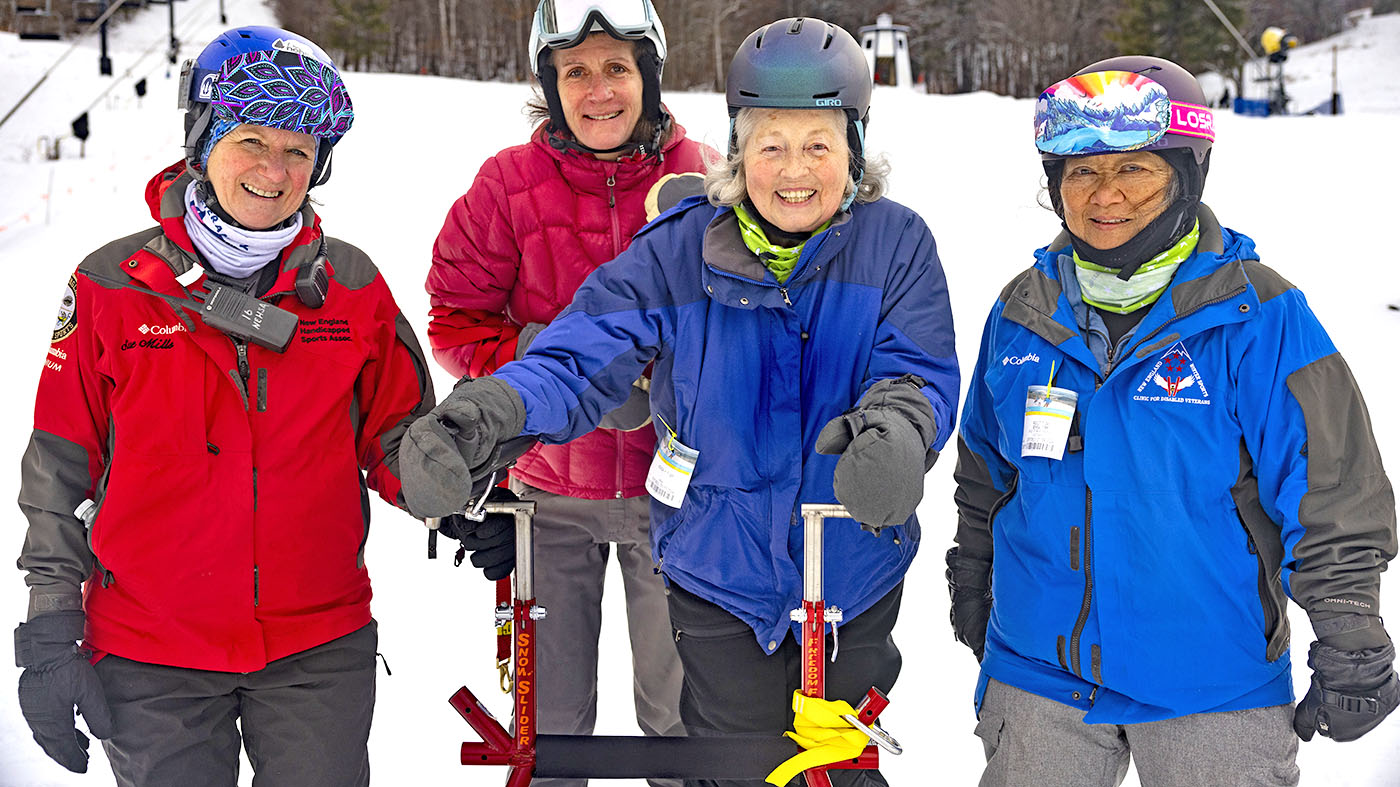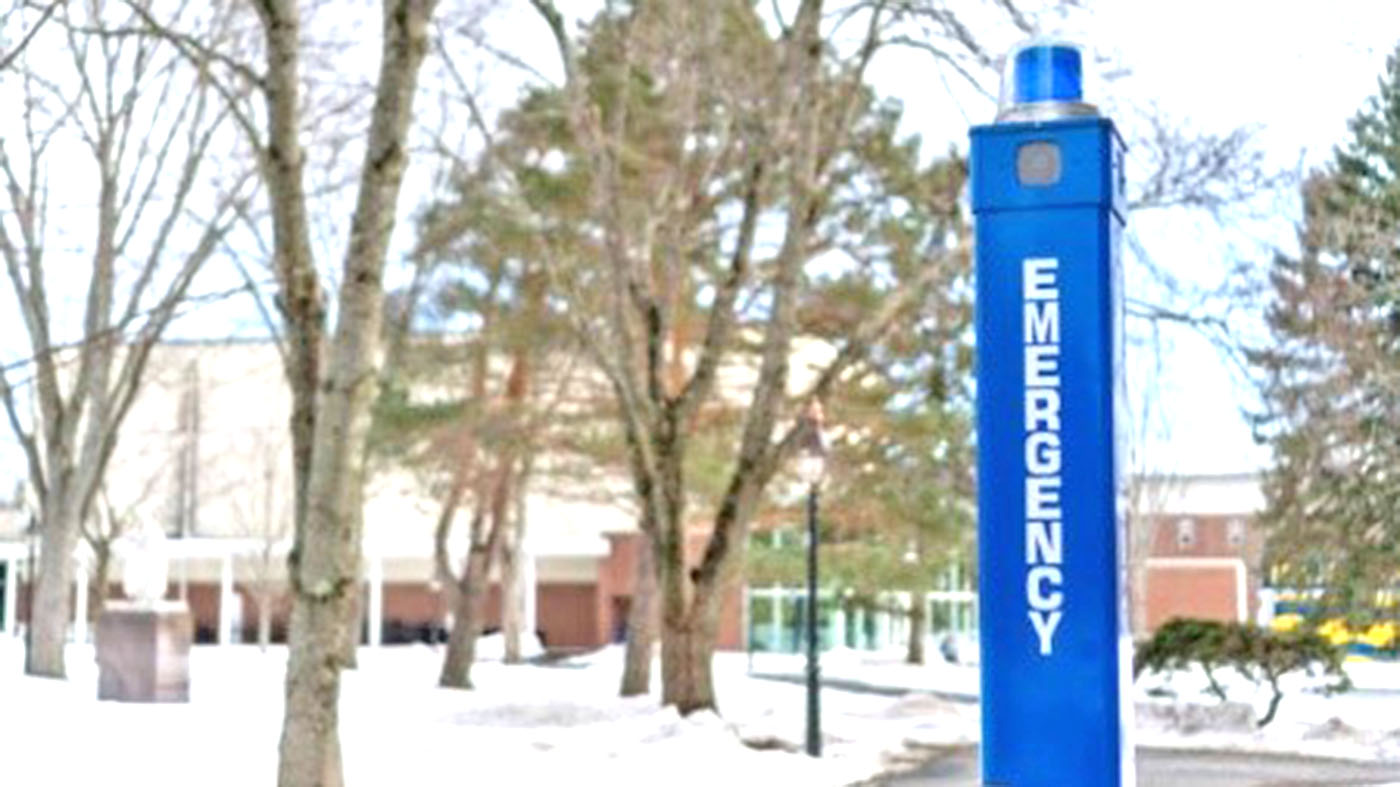According to the U.S. Department of Agriculture, 11% of working-age Veterans (ages 18–64) experienced food insecurity between 2015 and 2019.
Food insecurity is limited or uncertain access to nutritionally sufficient food.
In 2017, VA added a food insecurity component to its homelessness screener to ensure all Veterans seen at VA medical centers are screened for both food insecurity and homelessness.
In March 2021, VA updated this component to the Hunger Vital Sign, a two-question screening tool used to better identify at-risk households. Staff who use the screening tool are also trained to provide resources and counseling for Veterans.
“This isn’t just about homelessness,” said Megan M. Bowman. “Veterans are having to choose between food and medication.”
Bowman is a registered dietitian and assistant chief of Nutrition and Food Services at the VA Salt Lake City Health Care System.
Once a Veteran has screened positive for food insecurity, a three-month reminder is entered in their health record to ensure that Veterans who move in and out of food insecurity are screened regularly.
More than ten million screenings since 2017
Since VA first began using a food insecurity screen in 2017, there have been more than 10 million screenings involving 7 million Veterans.
The food insecurity screen makes it easier for staff at the Robert J. Dole VA Medical Center in Wichita, Kansas, to ensure that food is available to Veterans who are experiencing or at risk of homelessness.
They do this through two programs: Veterans Ride Free and the Dole Food Bank Delivery.
The Dole Food Bank Delivery program was initially created solely for Veterans experiencing homelessness, but it was expanded in April 2021 to include any Veteran who meets an income threshold.
In partnership with Disabled American Veterans, DAV drivers pick up food from two local food banks and deliver it to Veterans’ homes. Each Veteran receives two boxes of food per month from each of the two food bank partners.
They also receive a cookbook created by Dole VA Nutrition Services that has recipes using common ingredients provided by the food banks.
Dole VA also partners with Wichita Transit and The United Way of the Plains to operate Veterans Ride Free, which provides free bus rides to Veterans. These partnerships have helped Veterans who have experienced issues with reliable transportation and food insecurity.
Dole Food Bank Delivery provides access to free food
“What we have found in Wichita is that people who are literally homeless sometimes have access to more food resources than when they are housed because our community provides free meals for those in shelters or even on the street,” said Suzanne Jenkins, Homeless Program supervisor. “The Dole Food Bank Delivery program helped those who are now housed with little or no income continue to access free food.”
Jennifer Cheney, a Veteran enrolled in the Housing and Urban Development-VA Supportive Housing program, was identified as eligible for the Dole Food Bank Delivery and Veterans Ride Free programs thanks to the food insecurity screener.
“We get a calendar with the delivery schedule for the food delivery services,” said Cheney. “And the boxes include a lot – like beans, lentils, milk, juice and vegetables.”
For more information
- Learn about VA’s Nutrition and Food Services and food insecurity screen.
- Read Getting Started with Food and Nutrition Services.
- Veterans who are homeless or at risk of homelessness should contact the National Call Center for Homeless Veterans at 877-4AID-VET (877-424-3838).
- Subscribe to the Homeless Programs Office newsletter to receive monthly updates about programs and supportive services for Veterans experiencing or at risk of homelessness.
For more blog posts on food security, visit: https://news.va.gov/?s=food+insecurity.
Topics in this story
More Stories
Spinal cord stimulation implantation helps Veterans suffering from chronic pain improve their quality of life without narcotics.
After Addison’s Disease and lumbar spine surgery, nurse Veteran Gayle Smith re-learned how to ski. “You have more courage than you think.”
Follow these 10 winter safety tips to stay warm, safe and protected during the cold winter.







How can we help support our local veterans with this? I volunteer for a non-profit org where volunteers cook and drop off/serve fresh, nutritious, plant-based meals at shelters and we have served over 50,000 plant-based meals. Is there a way for us to be able to help our local veterans in WA? Would appreciate some guidance along these lines.